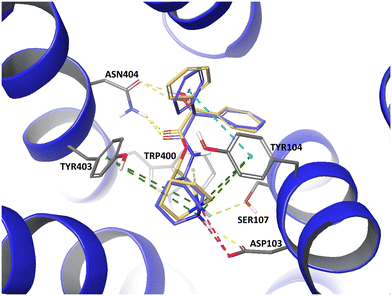The Department of Pharmaceutical Sciences invites applications for a senior scientist position. The candidate should have an excellent track record in the field of Pharmacoinformatics, in order to lead current research project and teaching tasks. The employment is initially limited to 6 months with the option of extension for the duration of the leave of absence of a staff member.
Your personal sphere of play
Your area of responsibility includes the scientific, technical, as well as administrative support of research projects at the Department of Pharmaceutical Chemistry, especially in the area of Pharmacoinformatics. We also expect design and execution of own research projects in the field of pharmacoinformatics, as well as the publication of results in international peer-reviewed journals. Furthermore, we expect holding of classes due to extent regulations of wage agreement.
In particular, your field of activity will include:
- Maintenance of the hard- and software infrastructure of the Pharmacoinformatics Research Group
- maintenance of the institutional knowledge of the Pharmacoinformatics Research Group, especially new methods and workflows
- Scientific (Co)supervision of EU-projects of the Pharmacoinformatic Research Groups
- maintenance and improvement of the web services of the Pharmacoinformatics Research Group
Your future tasks
You actively participate in research, teaching & administration, which means:
- You participate in research projects and scientific studies in the field of pharmacokinetics.
- You publish internationally and give lectures.
- You apply for projects and acquire third-party funding.
- You participate in evaluation measures and quality assurance.
- You will take on administrative tasks in research and teaching
This is part of your personality
- Completed doctoral/PhD studies in natural sciences
- Excellent experienceknowledge in the field of pharmacoinformatics
- Programming knowledge in a least one language (C++, Python, Java, MOE svl)
- Documented publication activity in peer-reviewed journals
- Excellent knowledge of English (C1)
- Additional skills
- High ability to cope with pressure
- Good team-working ability
- Ability to publish in English
What we offer
- Work-life balance: Our employees enjoy flexible working hours, remote/hybrid and/or part-time work (upon agreement).
- Inspiring working atmosphere: You are a part of an international academic team in a healthy and fair working environment.
- Good public transport connections: Your workplace in the center of beautiful Vienna is easily accessible by public transport.
- Internal further training & Coaching: Opportunity to deepen your skills on an ongoing basis. There are over 600 courses to choose from – free of charge.
- Fair salary: The basic salary of EUR 4351,90 increases if we can credit professional experience.
- Equal opportunities for everyone: We look forward to diverse personalities in the team!
It is that easy to apply
- With your scientific curriculum vitae / letter of intent
- With your list of publications
- With your summary of research interests (max. 1 p.)
- Doctoral Degree Contact details of persons who could provide reference letters




